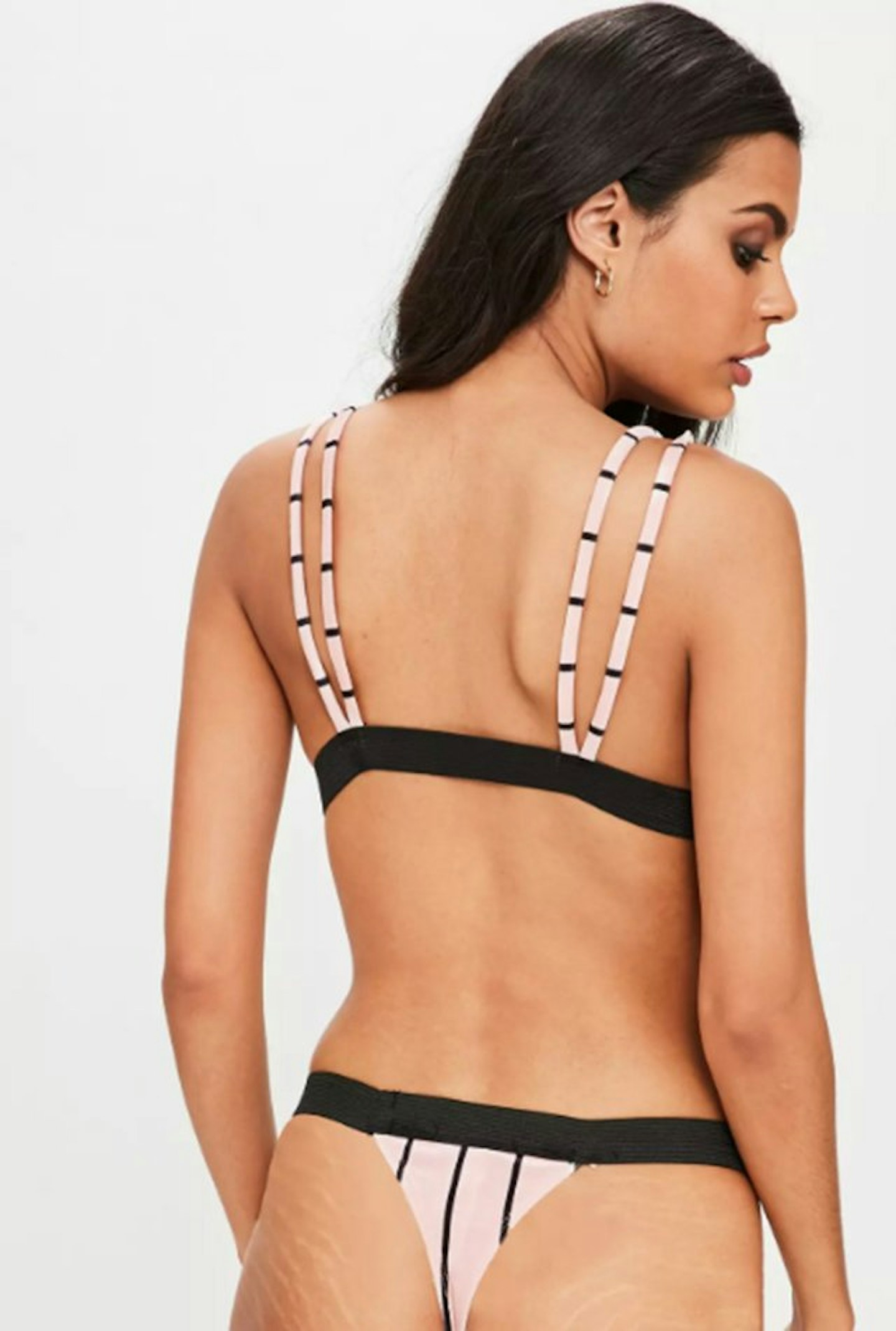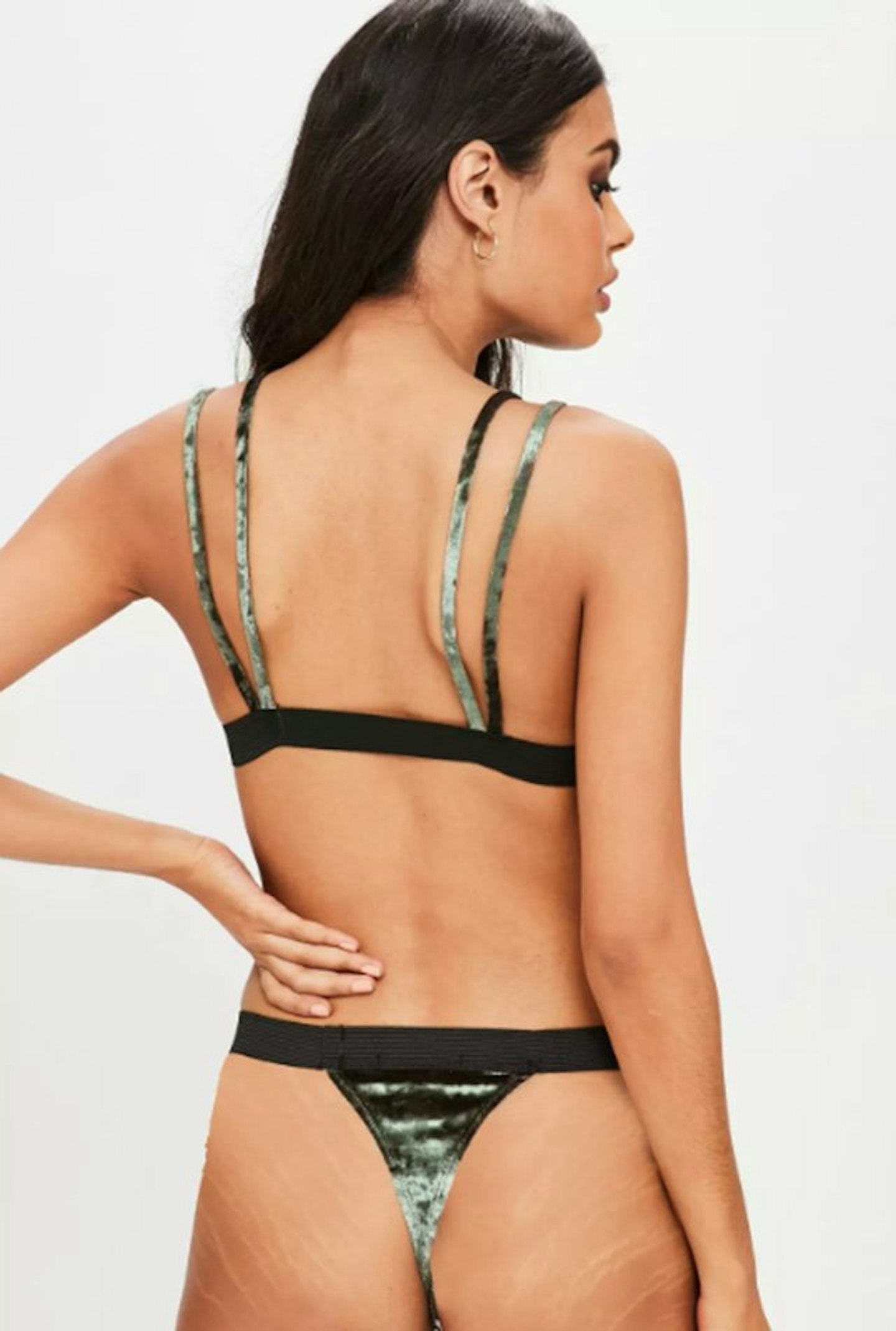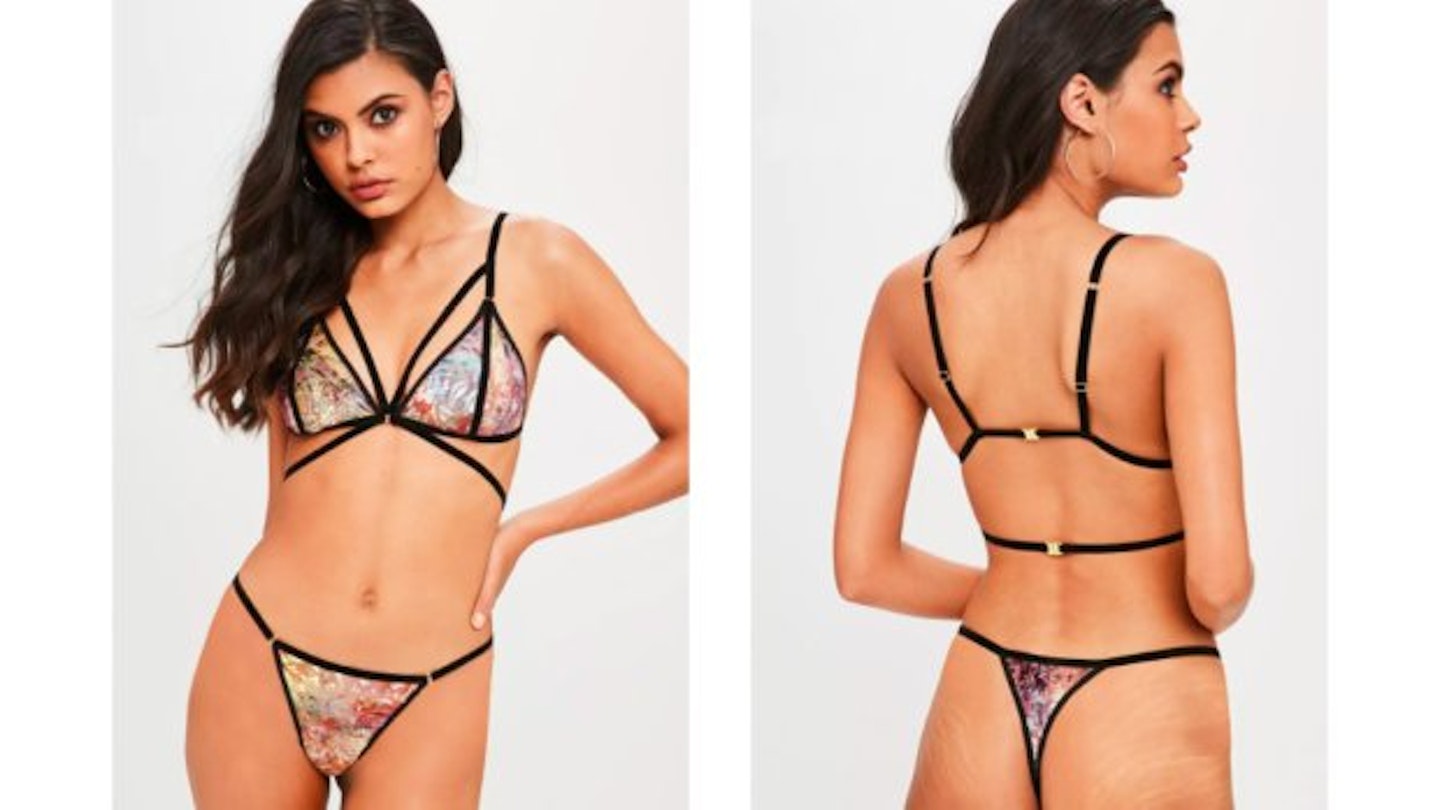Most women understand stretch marks are a normal and expected result of growing up and older. Whether caused by a teenage growth spurt, weight gain or a baby bump, almost all of us will at some point see them on our bodies. But, it’s ever so rare for us to find them represented in the glossy world of advertising. Following ASOS who led the way, Missguided announced in early November that they would no longer digitally remove stretch marks from their models.
To the sound of applause, the high-street retailer began to upload images of models that clearly showed stretch marks. But, over the past weekend a prolific photographer, Chloe Sheppard, accused the brand of digitally altering their images to add stretch marks. Sheppard has in the past worked with the brand on their 2017 Prom lookbook as well as contributed to publications like Dazed & Confused, Polyester, Refinery 29, i-D and Nylon.

Sheppard (who uses the Instagram handle @eolhcsheppard) posted a black and white image of herself alongside the accusation, which gained 3,813 Likes. She wrote: ‘I suppose this is somewhat a response to a certain company's recent tasteless move editing stretch marks on a model, which was clearly a marketing tactic to make their brand seem "representative" and "not conforming to normal conventional beauty standards" but actually it's just bullshit. Stretch marks are something that aren't a fucking trend and can be pasted on and off, or enhanced so your brand looks revolutionary, they are something that make me, and most likely millions of people insecure and to me reinforce the idea of how unattractive I am to everybody else in society and that my body isn't normal and is something to be ashamed of. Fair enough if you want your brand to be authentic and inclusive, but instead of BLATANTLY photoshopping the pictures, use models that already have such stretch marks, I am sure there are plenty of them. It's quite honestly insulting and does the opposite of what they probably intended. It reiterates the idea that stretch marks/eating junk/thick thighs whatever are OK but only when applied to a skinny girl. I'm just bored of all these companies acting like they give a shit and want to represent everybody when they really don't.'
When asked how she knew that the images had been altered in post-production, the photographer told The Debrief: 'My friend showed me a video of the same model doing a swimwear video for them and you can actually see that she does have stretch marks on her bum, so they haven't photoshopped them in as I'd originally thought. However, the images definitely have been digitally altered, because if you go to their original Instagram post and zoom in on where the stretch marks are, you can see little bumps and white shadowing from where something has been done to that area on photoshop. The stretch marks are also completely different patterns in the 2 photos which made me think they were doctored on.'
Using her trained eye, she added: 'And the pants themselves look so fake as there's no shadow around where the fabric of the pants would be.'
'What made me so angry when I thought they were fake is that companies are choosing to capitalise on 'body positivity' for their own gain and profit, it's just straight up inauthentic', she vexed, ' Even Missguided with this stretch mark thing, like yeah sure it's a good step to show that not just fat bodies have stretch marks but skinny ones too, and that that's nothing to be ashamed of, but for this campaign they also used a model who is conventionally attractive in every other way. She's still a size 6/8, still airbrushed to perfection in terms of her face/rest of her body except where the stretch marks are, so can it really be classed as so revolutionary? I am just so tired of this industry acting like they care about people that they don't even cater for and when I heard about the Missguided thing it was just the last straw. Because stretch marks are something I have a personal relationship with, and it made me feel so sick to think a company was trying to gain from it under the guise of being "body positive". '

In response Missguided has released the following statement: ‘We would like to add that all accusations that we have photo-shopped on stretch marks are entirely untrue. Our aim is to inspire body positivity, so our policy is to not photoshop out what are generally perceived as 'flaws'.Photoshopping them on would negate our message, which is all about celebrating who you are and not striving for unrealistic perfection.’
We have reached out to Missguided for further comment, but the question remains: if Missguided is keen to represent and normalise a skin affliction that affects 80 per cent of women, is it such a bad thing? Though the flip side suggests the brand is co-opting the body positivity debate to generate warmth for the company, it still stands that they are attempting to show bodies untethered by the strict ideals that have previously been placed on them.
Liked this? You might also be interested in:
How Do You Get Rid Of Stretch Marks? And All The Other Questions We're Asking About Them
This Artist Is Covering Her Stretch Marks In Glitter And We Love It
In The Quest For Body Positivity, Can We At Least Be Positive?
Follow Lucy on Instagram @lucyalicemorris
This article originally appeared on The Debrief.
